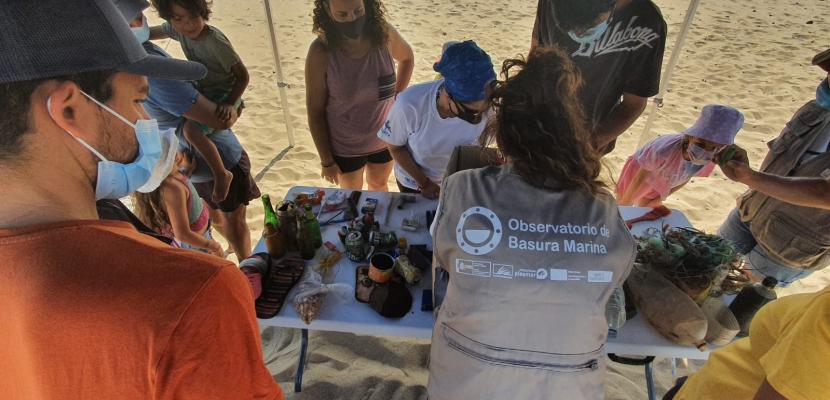
Fuerteventura Marine Litter Observatory

About this good practice
The Marine Litter Observatory (OBAM) was created by the Fuerteventura Biosphere Reserve and the Environment Department of the Fuerteventura Island Council, in collaboration with the Biodiversity Foundation of the Ministry of Ecological Transition and Demographic Challenge and co-financed by the PLEAMAR Programme of the European Maritime and Fisheries Fund (EMFF).
The OBAM follows a standardised methodology that serves for the scientific diagnosis and for improved governance by the involvement of all key stakeholders.
This project is divided into three blocks:
- Research, consisting of the scientific diagnosis of the situation of marine waste arriving to the coasts of Fuerteventura with the data obtained in the collection of waste by different key stakeholders.
- Innovation: related to the development of prototypes for the collection of microplastics anchored in artisanal fishing boats with the possibility of including it in Whale Watching as well as remote sensing of plastic waste with drones.
- Training, capacity building and awareness-raising: workshops are organised and developed on the categorisation of marine litter, waste management at home to improve the environment, assistance to marine fauna in accidents, or aimed at the tourism sector, such as "Eliminating SUP from the hotel sector" or being a link between local plastic free producers and the sector.
Expert opinion
Resources needed
This project is funded by the PLEAMAR Programme of the European Maritime and Fisheries Fund (EMFF), in 2020 it received 34,500.00 € for the development of the actions, in the call for 2021 the project was beneficiary with 215,000.00 €.
Evidence of success
So far, 28 tons of waste have been collected from the coast of Fuerteventura corresponding to a total of 400,000 items, of which 70% belonged to the category of plastic, most of them SUPs.
From July 2021 to date, approx. 3,000 kg of waste have been collected from the sea. From this waste mainly collected by the fishermen, 90% is illegal fishing gear from other territories.
Approximately 350 people with different profiles have participated in the different workshops since they began.
Potential for learning or transfer
This project is easy to transfer, the key to it is the creation of a network of key agents in which they work in unison following the methodologies standardised by the European Union within the OSPAR convention. In this way, there is an updated scientific diagnosis that allows improving the governance with respect to these wastes.
The data obtained from the project is being reported to Europe and is being used to develop protocols for "floating rubbish fishing". It is also helping the local administration to take measures to improve waste management, as well as waste-specific measures, such as cigarette butts.
The fishing gear found and collected as floating rubbish is being revalued for use as a new product, under the slogan "mama's hands" through the participation of artisans from the island to make it a sustainable revaluation with a low carbon footprint within the logistical complexities found on the island.
Further information
Good practice owner
You can contact the good practice owner below for more detailed information.
